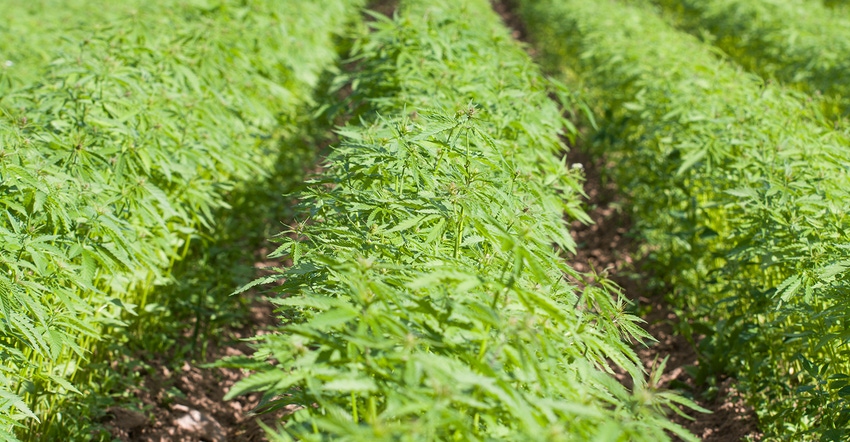A hemp bill introduced this week in the U.S. Senate by Sen. Rand Paul received support from many organizations, including the American Farm Bureau Federation, Kentucky Hemp Association and Vote Hemp.

Sen. Rand Paul (R-Ky.) on Tuesday introduced legislation that would change the legal definition of hemp, raising the limit of THC to 1% from 0.3%.
The Hemp Economic Mobilization Plan (HEMP) Act of 2020 also would mandate testing of the final hemp-derived product rather than the hemp flower or plant itself, require hemp shipments to contain a copy of the seed certificate showing the plant was grown from 1% THC seed and define a margin of error for testing THC levels, according to a Dec. 15 news release from Paul’s office.
“For years, I’ve led the fight in Washington to restore one of Kentucky’s most historically vital crops by legalizing industrial hemp,” Paul said in the release. “We achieved a hard-won victory, but there is still work to do to prevent the federal government from weighing down our farmers with unnecessary bureaucratic micromanaging. My legislation will help this growing industry reach its full economic potential, and I am proud the bill has strong support all the way from local Kentucky farmers and activists to national groups, including the American Farm Bureau Federation.”
According to a background paper from Paul's office, hemp farmers and processors in Kentucky are in favor of raising the THC limit; per current laws and regulations, the paper said, crops testing above 0.3% must be destroyed. The background paper also discussed the reasons for requiring testing of the final hemp-derived product rather than the hemp flower or plant.
"Farmers have stated the 15-day timeframe for harvesting and testing hemp crop’s THC content in USDA’s rule is too short a time frame and does not take into consideration potential testing backlogs, lack of personnel to collect samples, and the time it takes to harvest," the background paper explained. "The THC content of hemp plants is significantly impacted by environmental factors, which farmers cannot control. Alternatively, hemp processors and manufacturers have greater control over the THC content in their products."
Paul's office also said neither USDA's rule nor the law provide a margin of error for hemp THC testing. Although USDA's interim rule for hemp production states DEA-registered laboratories calculate and include the measurement of uncertainty when they report THC test results, Paul's office said the rule provides no parameters for such a measurement of uncertainty. Paul's bill appears to specify a measurement of uncertainty could not exceed 0.075%.
"Senator Paul's HEMP Act has the potential to improve upon the highest priority issues for hemp growers, processors and labs, while making sure to keep our consumers safe as well," Katie Moyer, owner of Kentucky Hemp Works, a provider of CBD oils and other hemp products, said in Paul's news release.
According to Paul, his bill received support from activists and farmers in Kentucky and national groups, including the American Farm Bureau Federation. The Kentucky Hemp Association and Vote Hemp also expressed support for the legislation.
“The HEMP Act makes critical improvements that will better allow farmers to successfully grow and profit from hemp," Eric Steenstra, president of Vote Hemp, said in the release.
About the Author(s)
You May Also Like






.png?width=800&auto=webp&quality=80&disable=upscale)